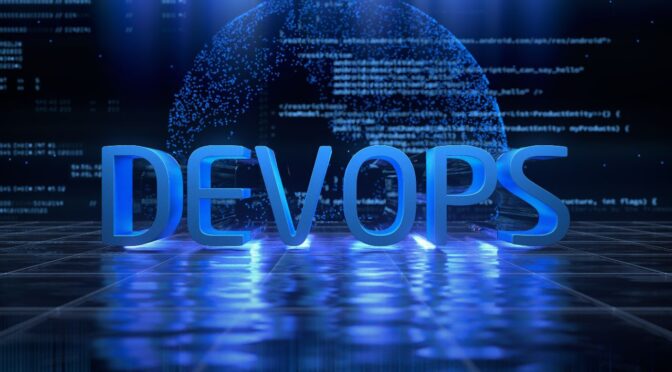As an experienced DevOps engineer, you’ve likely spent countless hours debugging issues, monitoring systems, and managing outages. While the role is rewarding, the operational demands can consume a significant portion of your time.
Fortunately, artificial intelligence (AI) and machine learning (ML) are evolving rapidly, poised to revolutionize DevOps workflows in remarkable ways. In this article, we’ll explore how AI is enhancing DevOps processes and the benefits it brings.
Automating Infrastructure Provisioning with AI
One of the most time-consuming aspects of DevOps is manually provisioning and configuring infrastructure. Tasks like setting up new environments, cloning test setups, and patching systems are repetitive and tedious.
Tools like Pulumi, HashiCorp Terraform, and AWS CloudFormation allow for infrastructure as code, but AI takes it further. AI assistants, such as Anthropic’s Claude, can analyze your infrastructure code, detect patterns, and create reusable modules and abstractions. Over time, these AI tools become more intelligent, simplifying infrastructure setups and making them easier to maintain at scale.
Continuous Monitoring and Issue Detection
Monitoring your software stack, services, and metrics is crucial for stability and reliability. However, manually scanning dashboards and handling alerts is exhausting. AI offers a smarter approach with self-supervised anomaly detection models that learn your unique baselines and detect issues as they arise.
Modern monitoring tools now incorporate AI to provide features like automatic metrics clustering, log and trace correlation, and predictive problem diagnosis. With ML-based recommendations, you can quickly identify the root cause of issues, saving hours of troubleshooting. AI also flags unnecessary resource usage and outdated configurations for continuous optimization.
Automated Testing at Scale
Comprehensive testing is essential in DevOps, but it can be challenging to execute effectively at scale. AI enhances testing by using natural language processing to automate functional and security tests.
Advanced testing bots can mimic human behaviors, thoroughly exploring applications. They scan codebases, fuzz inputs, and generate synthetic traffic to uncover bugs early. AI-driven testing increases coverage while significantly reducing manual effort, providing insights into risks across all environments.
AI-Enhanced Predictive Analytics
Predictive analytics is where AI truly excels in DevOps. By analyzing historical data, AI can forecast future outcomes with impressive accuracy, predicting system outages or failures before they occur. This allows proactive issue resolution, minimizing downtime and maintaining a seamless user experience.
Imagine your monitoring systems warning of traffic spikes hours in advance or models that scale resources perfectly based on seasonal trends. AI-powered predictions enable better planning and simulation of changes, preventing regressions or downtime.
Intelligent Automation
Automation is a cornerstone of DevOps, and AI elevates it further. Intelligent automation learns from past actions, continuously improving its efficiency. It handles routine tasks, freeing you to focus on more complex challenges.
This intelligent approach accelerates workflows and reduces technical debt. To understand more about technical debt, refer to our article on “What is Technical Debt?”
Enhanced Security
Security is paramount, and AI adds an extra layer of defense. By learning what ‘normal’ looks like, AI detects anomalies that may indicate security breaches. It also performs fuzz testing, simulates exploits, and helps roll back breaches by analyzing earlier system states.
AI acts as a vigilant sentinel, continuously safeguarding your systems from potential threats. For more on securing your DevOps environment, check out our blog on “Container Security Best Practices.”
Resource Optimization
AI optimizes resource usage by analyzing historical patterns. For example, it can generate Kubernetes limits and requests for containers based on peak memory and CPU consumption, ensuring performance isolation and preventing resource overuse. Tools like Kluster or KubeAdvisor tune configurations automatically, maximizing efficiency without compromising user experience.
Limitations of AI in DevOps
While AI brings numerous benefits to DevOps, it also has limitations:
- Data Dependency: AI models rely heavily on data quality, volume, and relevance. Incomplete or biased data can lead to inaccurate predictions and automation.
- Complexity and Interpretability: AI systems can be complex, with opaque decision-making processes, making it challenging to understand why certain decisions are made.
- Integration Challenges: Incorporating AI into existing workflows requires seamless integration with current infrastructure, often involving significant changes.
- Skill Gap: Effective implementation of AI-driven systems requires a solid understanding of AI principles, necessitating additional training for DevOps engineers.
- Continuous Learning and Adaptation: AI models require continuous updates and retraining to remain effective, which can be costly and time-consuming.
- Ethical and Security Considerations: AI raises ethical questions about privacy and data usage, and AI systems can become targets for security breaches.
- Cost: Implementing AI involves initial investments in technology and ongoing costs for processing power, storage, and management.
- Reliability and Trust: Building trust in AI’s capabilities is essential, and stakeholders may hesitate to rely on AI for critical tasks without understanding its reliability.
Understanding these limitations helps you prepare for and mitigate potential risks, ensuring a successful integration of AI into your DevOps practices.
Conclusion
While AI in DevOps is still evolving, it offers significant value when applied thoughtfully to address specific pain points. By integrating machine learning where it makes sense, you gain powerful tools to streamline operations, allowing you to focus more on innovation that drives business impact.
